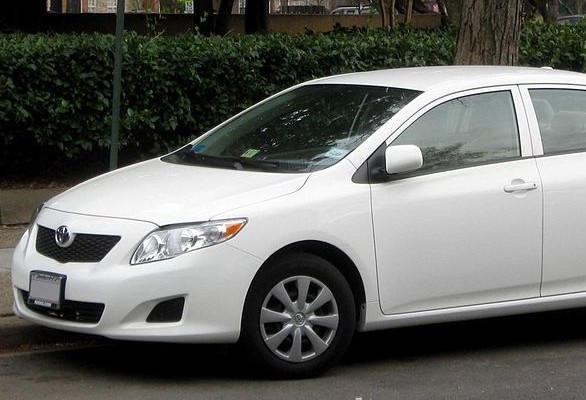DETROIT (AP) — U.S. shares of Toyota, Honda and Nissan soared Thursday as investors anticipated that a weaker yen will allow them to sell cars more cheaply in the critical U.S. market.
The Bank of Japan plans to increase the amount of cash in circulation, a move that will depress the value of the yen against the dollar. That will lower the cost of producing Japanese imports for Americans.
Shares of Toyota, Honda and Nissan all rose more than 4 percent as some analysts predicted a drop in Japanese car prices. But they also say the effect of the weaker yen will be blunted because those companies have previously moved so much of their production to North America.
The yen weakened 3.5 percent against the dollar. Shares of Ford Motor Co. and General Motors Co. fell slightly.
GM CEO Dan Akerson told CNBC Thursday that he’s worried the Bank of Japan’s actions will give Japanese automakers a price advantage in the U.S., the world’s second-biggest car market after China.
“They’re an export economy. You have to be suspicious of what they’re doing and why,” Akerson said.
A weaker yen helps Japanese carmakers because it lowers the cost of producing cars in Japan. Cars built more cheaply there and then imported and sold in the U.S. bring higher profits to Japanese companies.
Standard and Poor’s analyst Efraim Levy said the most immediate impact for consumers will could be lower prices for Japanese cars. Toyota could undercut its rivals because its production costs are lower. In the longer term, Levy said, the company might add more features at a lower price.
But Levy said the impact of a lower yen won’t be as great as in the past. Japanese automakers have been moving production to North America since the 1980s, in part to avoid currency fluctuations. Several are in the midst of expanding production in North America.
Ninety percent of the vehicles Honda sells in the U.S., such as the Accord and Civic, are made in North America. Honda plans to expand that to 95 percent next year with a new plant in Mexico. Toyota makes 70 percent of the cars and trucks it sells in the U.S. in North America. The Prius hybrid and Lexus cars are among the vehicles it still makes in Japan.
Nissan, which makes the midsize Altima and the Rogue crossover in the U.S., expects that 85 percent of the vehicles it sells in the U.S. will be made in North America by 2015.
Currency is just one factor that goes into the complicated business of making and pricing cars. Steel prices, supplier costs and other variables could offset Japan’s advantage. Most important, Levy said, is offering competitive vehicles.
“If you have the product the consumer wants, you can overcome any currency issues,” he said.
That’s an advantage U.S. automakers enjoy right now. U.S. sales for GM, Ford Motor Co. and Chrysler Group jumped 9.5 percent in the first quarter, compared with a 3.2 percent increase for Asian brands, according to Autodata Corp. The Detroit automakers control more than 80 percent of the full-size pickup truck market, which is the fastest-growing segment right now. And cars such as the newly redesigned Ford Fusion are gaining ground on older models like the Toyota Camry.
Overall industry sales rose 6.5 percent from 2012.
Akerson said GM must compete with strong, high-quality vehicles and can’t make excuses about foreign currency values.
“You can complain about the weather, but that’s what it is,” he said.
GM’s shares fell less than 1 percent to $27.71. Ford’s shares slipped 4 cents to $12.64.
Toyota U.S. shares rose 4.7 percent to $105.66, nearly reaching a five-year high. Honda shares gained 5.4 percent to $39.21 and Nissan rose 5.4 percent to $19.83.
___
AP Auto Writer Tom Krisher contributed to this report.
.

